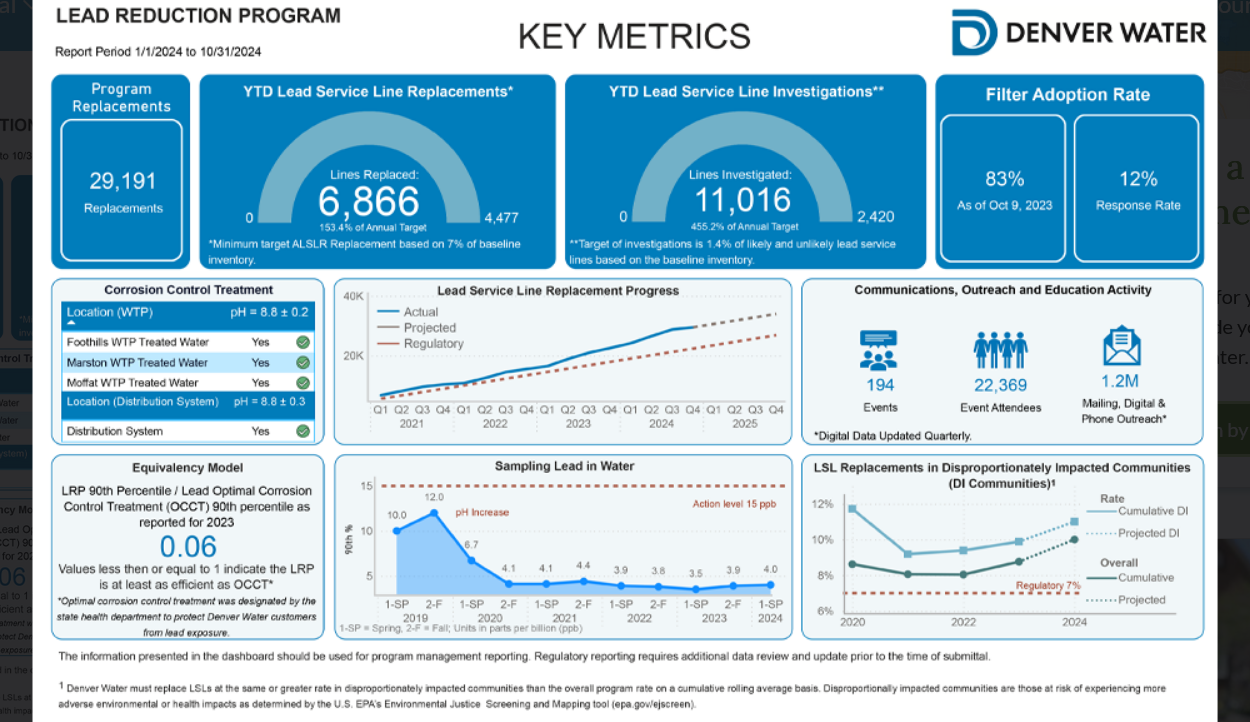

Denver Water is halfway through replacing lead pipes. Why didn't this happen sooner?
KUNC | By Emma VandenEinde
Published November 7, 2024 at 8:00 AM MST
https://www.denverwater.org/your-water/water-quality/lead/dashboard
Siddhartha Roy is a professor at Rutgers University and has done research on the Flint Water Crisis. He said one reason could be that lead was the plumbing standard in the turn of the 20th century when many cities were growing rapidly.
“Cities had mandates that, ‘Hey, if you want public water, you have to use a lead pipe,’” he said. “There was an industry push. There was a lead lobby as hard as it is to believe that…it will poison you, but lead will last thousands of years.”
Woodrow with Denver Water said even as the dangers came to light, everything was still evolving and utilities were not sure what the best solution was at the time.
“I think there were a lot of questions within the industry, and also in public health, about how lead in drinking water kind of fits in the whole scale of lead exposure, and how serious it is,” she said.
Jason Stern grabs the extra part of the copper line that was pulled through the new hole in the ground. Even after the line is replaced, homeowners still are asked to use a water pitcher with a filter for a few months as the lead cycles out of the piping.
It took until the late 1980s to ban lead pipes and until the late 1990s for lead regulations to take effect. But utilities didn’t want to replace or fix the expensive pipes, as one line could cost tens of thousands of dollars to replace. Washington D.C. had its own lead water crisis long before Flint. Utilities sometimes covered it up, according to Roy’s research. Roy said many cities used “cheats”, or extra testing steps to minimize the problem.
“You had steps like, ‘Oh, flush (the water) for a few minutes the night before you took a sample in the morning,’ and that lowers lead levels,” he said. “That made it appear that the problem was not as worse as we thought.”
“(I) feel really lucky moving into this house and a year later being able to have normal water,” she said. “And as I say that, I realize that that's a weird thing to have to be thankful for, but here we are.”
Denver Water has about 1,000 more replacements to finish before the end of the year. It plans to work in East Denver in 2025 to stay on track with the goal of finishing the whole project within 15 years.
To find out if you have a lead service line, you can enter your address on Denver Water’s Lead Service Line dashboard. Homeowners with questions can call the utility call center at 303-893-2444.
This story was produced by KUNC, in partnership with The Water Desk at the University of Colorado’s Center for Environmental Journalism.

Comments